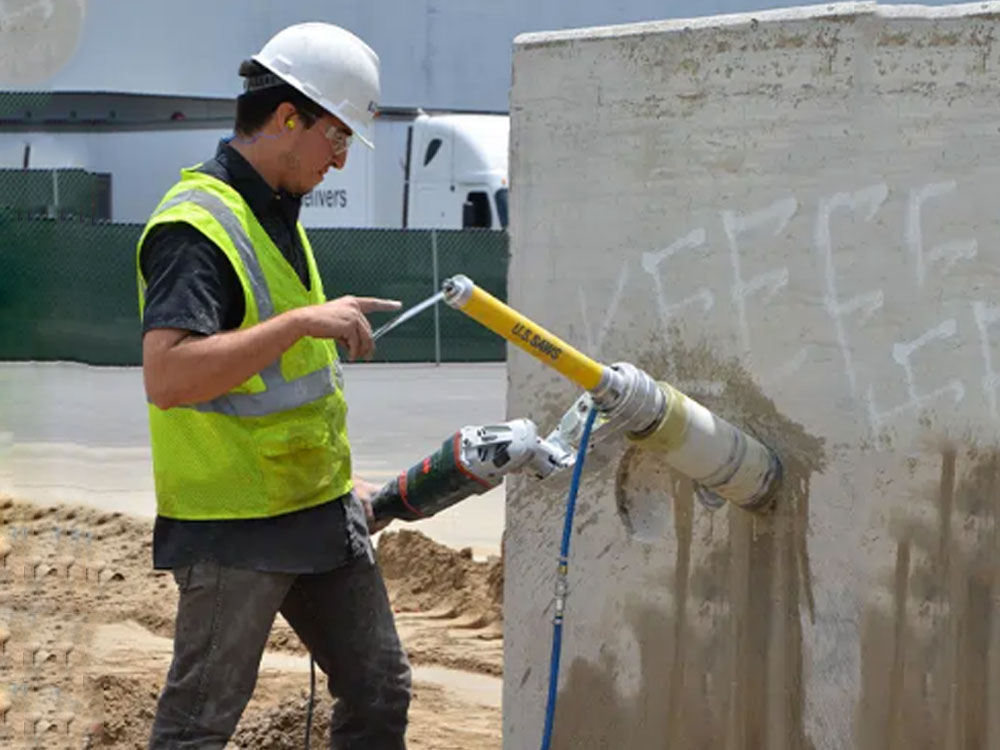

Angled coring (also called inclined coring) is a method of core drilling holes at a specific angle rather than the standard vertical or horizontal direction. This technique is performed using core drills mounted at calculated angles, allowing contractors to access or bypass structural features while maintaining drilling precision.
Drilling at an angle is ideal when rebar, post-tension cables, or embedded utilities are in the path of a standard core.
Enables safe routing around existing obstacles in floors, walls, or ceilings.
Commonly used in mechanical, electrical, and plumbing (MEP) systems where angled entry points are required.
Useful in tight spaces where straight-line drilling is not possible.
Creates angled holes for dowels, anchors, or reinforcement bars that need to be embedded diagonally for added pullout strength or load direction.
Used in seismic retrofitting to add shear resistance or tension capacity to structural elements.
Facilitates installation of sloped drains or ventilation outlets for gravity-based flow, especially in parking decks, basements, or tunnel walls.
Enables engineers to obtain core samples from difficult-to-access locations or to reach a specific target area within the concrete without damaging overlying finishes.
In select situations, angled holes are used to reroute or supplement post-tension systems, though this requires extreme precision and structural analysis.
Diamond-tipped core drill
Adjustable-angle rig or mount
Cooling water supply
Core barrels of appropriate diameter
Survey & Scan the Area
Use GPR (Ground Penetrating Radar) or X-ray to detect embedded elements.
Set the Angle
Mount the drill on an adjustable rig and align it to the desired inclination (often between 15°–75°).
Anchor the Rig
Drill must be securely fixed to prevent slippage during angled operation.
Drill Slowly with Cooling
Use water to cool the bit and suppress dust.
Extract Core or Complete Hole
If coring for testing, remove the cylindrical core; if for utility routing, clean and prep the hole.
© 2025 Rukn Alabtal Design By: sialweb